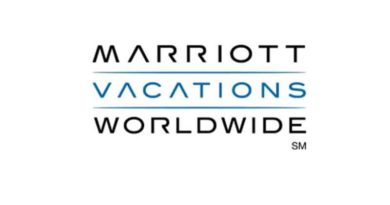Three Key Steps to Find the Right Employees Online
With 11 million job openings across the U.S., an additional average of about 4 million people quitting their job each month, the pandemic accelerating Boomer retirement plans, and only 6 million unemployed Americans to fill these openings, it’s no surprise that unfilled job positions are one of employers largest concerns. These conditions, plus many other factors such as the pandemic, social movements, and technological advancements, have resulted in a candidate-driven market, AKA a market where getting the right employees is more competitive than ever.
More details of what Kelley talks about are below video!
It means to fill positions, the burden lies on companies to work harder than applicants to make a perfect job/candidate match.
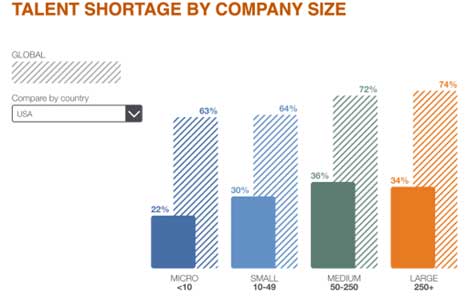
Just like digital advertising can micro-target customers, it can also target the RIGHT job candidates. Hiring the right candidate begins with setting the interviewer up for success by filling their calendar with good applicants, not just any applicants.
A poor applicant pool leads to limited choices for interviewing which leads to desperate hiring which brings desperation and lack of choices into your salary negotiations. This means you may end up paying more money for an employee who isn’t even a good fit.
And lower quality employees will cost you, big time. A Gallup study found that disengaged employees cost U.S. companies up to $550 billion a year. Reversely, engaged employees provided companies with 21% greater profitability.
Related: Influencer Marketing is the New Wave
They won’t just suck up your profits, but they will also eat away the majority of a recruiter’s time. The time that could be spent doing other things to propel an organization’s workforce forward is instead wasted on wading through floods of unqualified or uninterested applicants. An Entelo study found that recruiters spend an average of 1/3rd of their workweek sourcing clients and another poll found that 52% leaders found screening individuals from a vast application pool to be the most challenging aspect of their job.
I’d like to really emphasize the RIGHT candidates. Because that’s the problem with relying on job posting sites like Indeed and Monster, you get any and all candidates who are in the market for a job, any job. Add in applicants blindly applying to meet government benefit requirements and the platforms auto-submitting applications from on-site users, these sites tend to feed recruiting streams with a large amount of junk.
STEP 1: Define The Perfect Hire
Before utilizing digital marketing to find candidates, you have to define what is a good candidate for your resort or company. The more you define and identify here, the higher quality leads you’ll receive.
Related: Resolutions for a Socially Successful
When you define who you’re looking for, you have to go deeper than just the experience listed on someone’s resume. You need to define what soft skills a successful employee would have to fit in with your company culture and meet the demands of the specific job.
Soft skills are an often overlooked piece of the hiring process that has major impacts, a 2019 Talent Trend Study found that 89% of recruiters say bad hires typically lack soft skills while 80% of the same respondents identified creativity, adaptability, and collaboration is vital to company success. In 2022, Manpower Group also listed these skills along with critical thinking and analysis as the most in-demand soft skills in the United States.
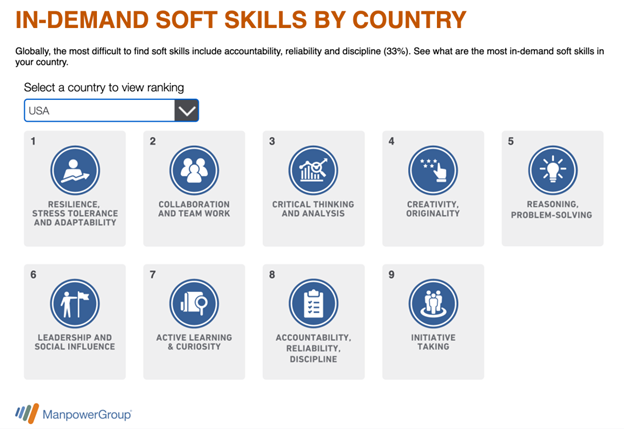
When you’re considering what experience the ideal candidate has, go further than a previous job title or a college degree. While there are pre-requisites for every job, many employers are beginning to recognize that the best candidates don’t always have the background they would have desired.
For example, the State of Maryland is no longer requiring a four-year degree for thousands of jobs that previously required one. By re-examining the qualifications, you prevent the perfect fits from being tossed aside based on a single data point that is potentially irrelevant to their ability to perform the job.
Properly defining what is needed for someone to be successful in a position, requires taking into account what effect they can have on your organization. While it’s obvious that bad employees and turnover cost companies money, employers should identify the value and potential revenue a stellar employee could add.
For example, if you’re hiring a housekeeping supervisor and the ideal candidate is requesting a salary hirer than you have budgeted to pay, consider that the improvements of a passionate, knowledgeable, and motivated housekeeping supervisor would positively impact customer satisfaction, which would improve online scores, which positively impact your rental revenue. By hiring well and recognizing the positive and negative impacts, you can truly define what the ideal candidate is, not just one that keeps you under budget.
STEP 2: Accurately Describe The Opportunity
You’ve identified who would be your perfect candidate, now how do you hook them and motivate them to trust you with the next step of their career?
In a candidate-driven market, employers can’t have the mindset that they are doing people a favor by giving them a job. The script has flipped, and it’s now the candidate asking why should I work for you?
The key to hooking them is in your applicant experience and transparency.
APPLICANT EXPERIENCE
Once an applicant lands on your job posting, your description determines if those good candidates feel your company is worthy of the time it takes to apply.
This is one of the biggest hurdles to overcome, given that Appcast estimates 92% of candidates who click “Apply” never submit an application.
To ensure your application experience is optimized for converting the right candidates into actual applicants, get creative and don’t rely on a few generic paragraphs of text about your company partnered with a vague list of job requirements.
Think lists, videos, testimonials, meet your boss section introducing them to who they would work with – anything you can creatively and clearly do to set the scene for what working with you would truly look like. The more honest you are, the better matched your applicants will be.
Once someone meets your company and reviews a job posting, the process for them to apply needs to be streamlined. People complain about having to manually enter their job history when they have a resume that details everything. You learn more about their organizational style, professionalism, and more from their resume vs your online form. If you have to do the online form for standardization – keep it brief but relevant. Ask yourself what you REALLY need to know and are looking for, don’t just use a blanket form.
Depending on the size of your company, you may even need custom applicant experiences for entry-level and management positions. There should be different things you’re looking for during those processes and separating them properly begins with the applicant’s experience. Brainstorm truly qualifying questions or situational judgment tests centered around the qualifications that matter the most from step one when you defined your ideal candidates.
If you have multiple job openings in multiple departments and seniority levels, you should NEVER send applicants to a generic careers page for them to filter through opportunities. Segmented landing pages or direct links to specific job postings work best.
TRANSPARENCY
Don’t force reasons to like the job. Such as saying it is flexible because it’s a trend when in fact it is not. What IS great about it? Promote that, not what’s trendy.
That being said, you shouldn’t ignore the trends of the job market and consider examining your company culture to reap the rewards of embracing trends and changes early on. LinkedIn’s 2019 study identified soft skills (91%), work flexibility (72%), and pay transparency (53%) as the three most important trends for the future of recruiting and HR. So, if your organization is not able to boast these benefits, don’t. But you should start looking for ways to implement them or risk having a difficult time recruiting and retaining high-performing employees.
No job is perfect, but every job has benefits. The key is communicating the benefits properly and transparently, so they catch the eye of the people who are willing and capable of doing the work to reap those benefits.
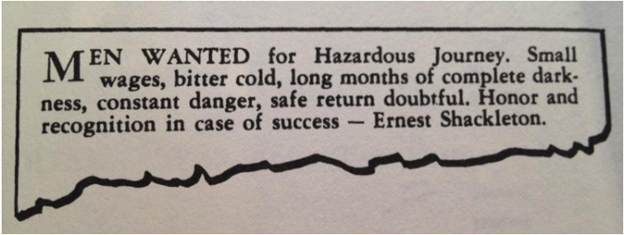
Step 3: Find Them Online
The job market is an employee’s world now, outside the box digital efforts not only reduce your reliance on posting sites, but they strengthen your brand and make you more competitive at reeling in top-quality candidates.
Online advertising allows you to place job opportunities in front of the right people at the right time, as opposed to relying on them to visit a job board site. There’s an obvious opportunity in improving the sourcing of job candidates – a 2021 Manpower Talent Shortage Survey found that 72.8% of recruiters are struggling to find relevant candidates.
On top of that, they also found that 73% of all candidates were passive, meaning they aren’t actively looking for an immediate job but would consider it if the right opportunity presented itself.
Digital advertising not only gives you the ability to use data points and segmentation to target the right candidates, but it also increases employer branding, something that Glassdoor determined makes companies 3x more likely to make a quality hire.
With companies losing an average $14,900 for every bad hire and top prospects being off the market in 10 days, it’s truly necessary for companies to think outside the box and put some real customization (the kind digital marketing provides!) into their recruitment efforts.
To utilize digital advertising, start by getting to know your market. You’ve defined who your ideal candidate is, now really get to know them.
Do they use LinkedIn, Reddit or Facebook? What interests would an ideal candidate have? What kind of messages would stand out to the kind of personality you’re trying to attract?
Depending on your audience, there are opportunities on Meta platforms (Facebook and Instagram), Google, LinkedIn, Reddit, Pinterest and more. Need tech people – try Reddit. Need a creative – hello Pinterest. The point is – find the people where they are, don’t wait for them to passively come to you.
Once you know who you are targeting and where, develop ads, landing pages and an application process that are all aligned to increase conversions. Make these relevant, honest, and customized and your candidate pool and recruiting team will thank you.

Hiring salespeople?
Use an ad that presents them with a challenge. Don’t just tout the $ because everyone wants money. You want someone not afraid to pick up the phone, talk to a stranger, etc. So create ads, job descriptions, and listings that speak to the qualifications that you NEED someone to have.
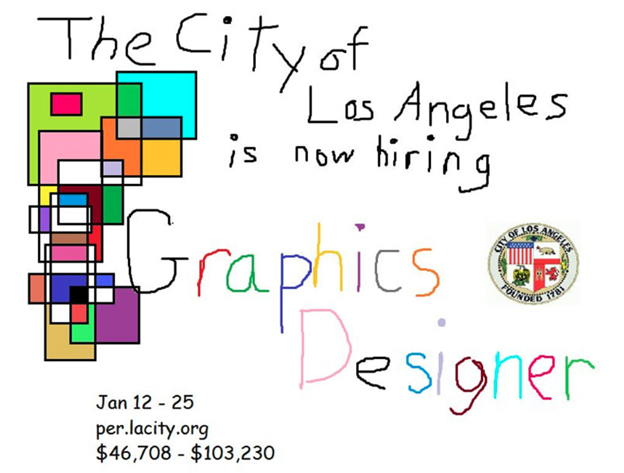
Hiring a graphic designer?
Attract the best by grabbing their attention.
Need housekeepers?
Consider an ad that gets noticed by someone who is knowledgeable and interested by creating an ad with a housekeeping problem and asking for advice.
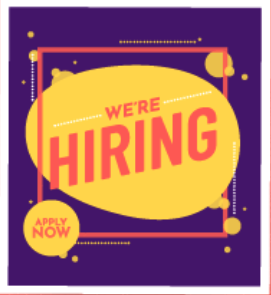
If you’re using something this generic, it’s no surprise if you aren’t getting top-tier applicants.
Relying solely on job posting sites to attract the RIGHT employees is as effective as tossing a net out into the vast ocean and hoping the perfect matches swim right in. It’s not just a silly thought, it’s an expensive one.
Take the time to define what soft skills and personal motivators the ideal candidate would possess and customize the entire experience – from ad creative, job descriptions, landing pages, and application process to connect with those individuals.
When you know your candidates and meet them where they are online with an experience that connects with them, you’ll improve your entire employee lifecycle from recruiting to retention.
Kelley Ellert is a marketing consultant and strategist who is on a constant search for ways to modernize resort marketing and chat strategy with other travel professionals. Look her up on LinkedIn @kelley-ellert.


